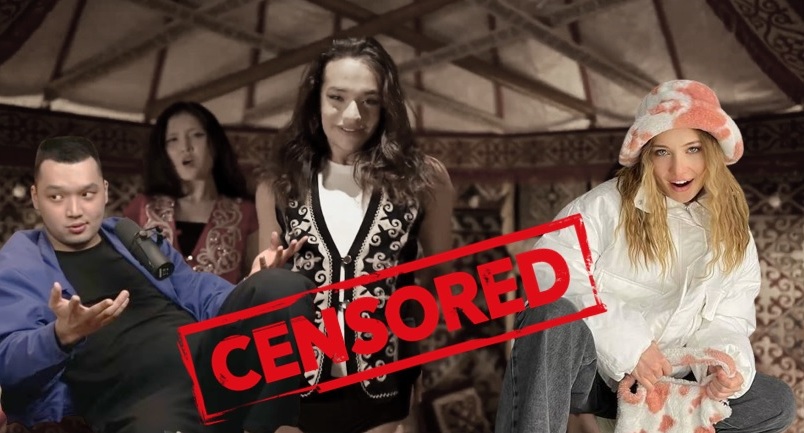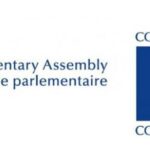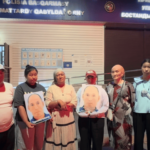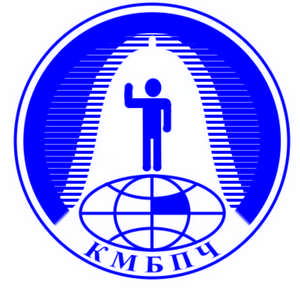A standup comedian and a woman who performed a rap song were arrested. A criminal case has been initiated against a choreographer for a dance that defied cultural norms.
Almaty resident and activist Maria Kochneva has been sentenced to ten days of arrest at a detention facility following her performance of the expletive-laden song “Yo, Orystar” (“Yo, Russians”) in a street-side rap battle.
Organizers chose one of Almaty’s busiest streets to hold the rap battle, commemorating the premiere of the Kazakhstani rap film Shulamah. Attending with her acquaintance Temirlan Ensebek, Kochneva made a spur-of-the-moment decision to perform the viral song, which had grown popular after the Russian invasion of Ukraine. Shortly after the event, Ensebek wrote on Instagram that Kochneva performed to demonstrate her opposition to the war.
The official film website initially published a video of the rap battle with minimal fanfare. However, pro-Kremlin Telegram-bloggers soon discovered the video and circulated it widely. Generating more discourse and pushback, the video was edited to include screenshots of her pro-Ukrainian activism and information on her social media handles. This additional notoriety generated a maelstrom of activity, attracting the attention of Almaty authorities.
On June 14th, the local authorities contacted Kochneva, requesting an in-person meeting at the Almaty district police department. According to Kochneva, local authorities did not provide her with information regarding the nature or purpose of the meeting, nor did they subpoena her. At the office, officers insisted that she write an official note that explained her actions.
Shortly thereafter, an administrative case was opened against Kochneva under Article 434 for “petty hooliganism” for her use of obscenities in a public place. Under the article, Kochneva faced a fine or maximum sentencing of administrative arrest for up to ten days.
The initial hearing, originally scheduled for July 17, was postponed to July 23rd. Then, it was delayed from the morning of July 23rd to the afternoon. In the end, Kochneva was sentenced to ten days in jail. Kochneva has expressed her intent to appeal the case, elaborating that the charges were a “demonstrative flogging to show Russian citizens that [Kazakhstani] law works” and that if she should be punished, then “everyone who participated” should also be punished.
Apart from her administrative woes, Kochneva has also become the target of an online Z lynch mob, which has seized her crisis as an opportunity to harass a now prominent “Russophobic” activist. Anonymous Kremlin-friendly users have pelted Kochneva and her family with threats of violence and death. In a voice message submitted to the media, an unknown man threatens: “You will answer for everything,” “You will suffer,” “We will kill you and your family,” and “We will bury you alive.”
Prominent separatist users played a significant role in spurring the rabble. In a statement to the police, Kochneva accused Telegram channel administrator Aslan Tolegenov and blogger Anton Budarov of instigating the harassment campaign. Notably, Tolgenov went as far as to weaponize Kochneva’s behavior to stereotype Kazakhstan, stating that the country was “teeming with people like her.”
So far, it is unclear if any action has been taken by the Almaty police to confront or otherwise deal with the online aggressors. Instead, all efforts appear concerted on what Ensebek believes is a reaction to the “Z-publics,” which attempts to reduce Koncheva “into a criminal.” In this vein, the lynch mob has succeeded—Koncheva will face time behind bars, while authorities will continue to turn a blind eye to a recreational pastime of organized verbal abuse.
This summer, young creatives and activists have been frequently punished by Almaty authorities. In July, a criminal case against the popular Almaty choreographer Sultanbekuly Alisher was opened after a video filmed in a yurt included an erotic dance routine. By the end of May, comedian Nurashkhan Baskozhaev was sentenced to fifteen days incarceration, also on charges of “petty hooliganism,” after a stand-up routine at Central Stand Up Almaty, which criticized public officials for their handling of the flooding crisis in the North. This week, Astana stand-up comedian Alexander Merkul was sentenced to ten days arrest.
Highly publicized police responses to youth creative efforts stifle their enthusiasm, discouraging them from performing at the risk of drawing the attention of the authorities. It also reflects a worrying trend: the tightening of restrictions on free speech.
As comedian Zarina Baibolova wrote following the arrest of Baskozhaev, “Today, it’s Nurashkhan. Tomorrow, it’ll be me or any other comedian. Today, it’s 15 days. Tomorrow, it’ll be 15 years — because of a joke.”
From comedy to choreography, no hobby is safe. Known for his crowded master classes, high heels, and glamorous outfits, Alisher never anticipated that his now-deleted dance video would put him under criminal investigation.
But his costume, heavily inspired by traditional Kazakh women’s attire, infuriated officials at the Karasai District Police Department. They initiated a pre-trial investigation that sought to determine whether or not Alisher violated Article 174 of the Criminal Code of the Republic of Kazakhstan. This article pertains to the intentional incitement of “social, national, tribal, racial, class, or religious hatred.” So far, authorities have not determined that the scandal has an objective criminal element. But the censorship attempt and public backlash have left its impact on Alisher, as he recently wrote online “It’s definitely hard for me, but I still want to live.”
Under the former authoritarian ruler Nursultan Nazarbayev, there was widespread unspoken censorship in the field of art and culture. Books criticizing the regime or quoting them, as well as songs, could become a reason for criminal proceedings. The country tacitly banned aitys, traditional song contests, when singers improvised songs on any topic using national instruments.
There are currently no genuine opposition political parties in Kazakhstan. Authorities have arrested two leaders of unregistered parties and imposed a restriction of freedom on another. Dozens of public figures, human rights activists and journalists have also been convicted for their professional activities. All peaceful protests are de facto banned. The media operates largely under censorship or self-censorship. In such an atmosphere, social media outrage and out-of-control activities in the arts may be perceived by the authoritarian authorities as the last remaining threats to their existence.


















